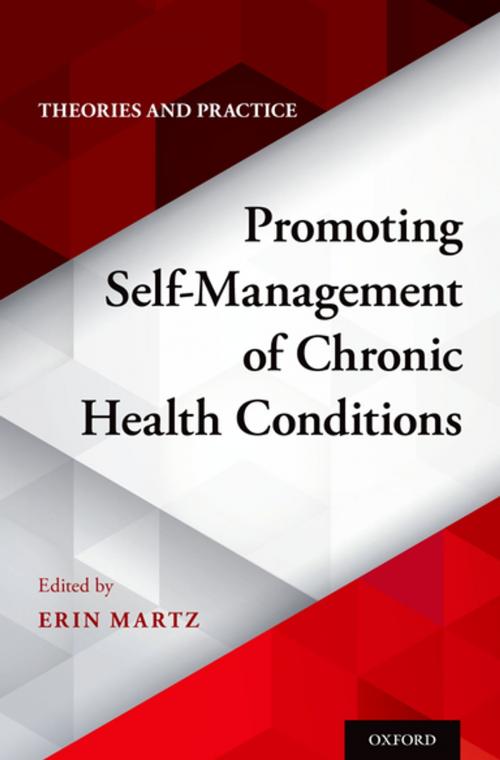Promoting Self-Management of Chronic Health Conditions
Theories and Practice
Nonfiction, Health & Well Being, Medical, Reference, Public Health, Psychology, Clinical Psychology| Author: | ISBN: | 9780190669867 | |
| Publisher: | Oxford University Press | Publication: | July 18, 2017 |
| Imprint: | Oxford University Press | Language: | English |
| Author: | |
| ISBN: | 9780190669867 |
| Publisher: | Oxford University Press |
| Publication: | July 18, 2017 |
| Imprint: | Oxford University Press |
| Language: | English |
It is common for a doctor or healthcare professional to see an individual with a chronic health condition only a few times a year for a brief office appointment. Yet, the individual has to live with the health condition 24 hours a day, 7 days a week. So, who really is in charge of managing the health condition? The individual has to "micro-manage" their condition, while healthcare professionals can provide advice on treatment approaches or the "macro-management" of the chronic health condition. Promoting Self-Management of Chronic Health Conditions covers a range of topics related to self-management-theories and practice, interventions that have been scientifically tested, and information that individuals with specific conditions should know (or be taught by healthcare professionals). Data suggest that currently a majority of individuals in the U.S. has a chronic health condition, and as society ages and healthcare continues to improve individuals' life-spans, more people will experience a chronic health condition. Health systems need to shift from an acute care model of treatment to a chronic care treatment model, in view of this trend. The expanding need for the development and scientific analysis of formal self-management programs accompany this increase in chronic health conditions. This book serves the critical purpose of helping to increase understanding of self-management and how healthcare providers can empower individuals with chronic health conditions to self-manage.
It is common for a doctor or healthcare professional to see an individual with a chronic health condition only a few times a year for a brief office appointment. Yet, the individual has to live with the health condition 24 hours a day, 7 days a week. So, who really is in charge of managing the health condition? The individual has to "micro-manage" their condition, while healthcare professionals can provide advice on treatment approaches or the "macro-management" of the chronic health condition. Promoting Self-Management of Chronic Health Conditions covers a range of topics related to self-management-theories and practice, interventions that have been scientifically tested, and information that individuals with specific conditions should know (or be taught by healthcare professionals). Data suggest that currently a majority of individuals in the U.S. has a chronic health condition, and as society ages and healthcare continues to improve individuals' life-spans, more people will experience a chronic health condition. Health systems need to shift from an acute care model of treatment to a chronic care treatment model, in view of this trend. The expanding need for the development and scientific analysis of formal self-management programs accompany this increase in chronic health conditions. This book serves the critical purpose of helping to increase understanding of self-management and how healthcare providers can empower individuals with chronic health conditions to self-manage.















